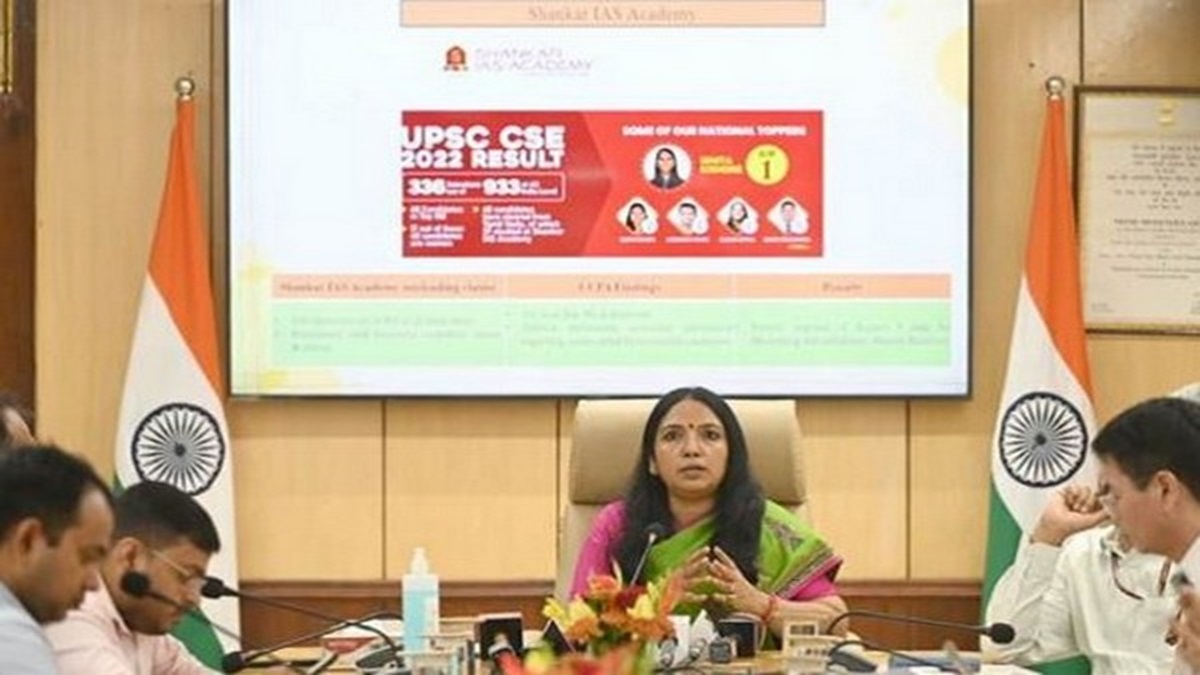 |
|
The Central Consumer Protection Authority (CCPA) in India has recently taken decisive action against three prominent coaching institutes for disseminating misleading advertisements concerning their success rates in the Union Public Service Commission (UPSC) Civil Services Examination (CSE). The penalties imposed underscore the CCPA's commitment to safeguarding consumer rights and ensuring transparency in the education sector. Vajirao & Reddy Institute and StudyIQ IAS each received a substantial fine of Rs 7 lakh, while Edge IAS faced a penalty of Rs 1 lakh. These financial repercussions serve as a strong deterrent against deceptive advertising practices. Beyond the financial penalties, the CCPA issued a stern directive, mandating that these institutes immediately halt the publication of all misleading advertisements. This comprehensive approach aims not only to punish offenders but also to prevent future instances of misleading claims that could potentially deceive aspiring civil servants.
The CCPA's investigation into Vajirao & Reddy Institute revealed a pattern of deceptive advertising. While the institute prominently displayed the names and photographs of successful candidates on its website to promote its paid courses, it strategically omitted crucial information. The investigation uncovered that all 617 candidates cited as successful had only enrolled in the institute's Interview Guidance Programme. This deliberate concealment misled prospective students into believing that all courses offered by Vajirao & Reddy Institute boasted similar success rates. The CCPA rightly viewed this as a blatant violation of consumer rights, emphasizing the importance of accurate and transparent information for informed decision-making. The omission of this critical detail deprived potential students of the opportunity to make an informed choice about which course best suited their needs and aspirations.
The findings against Edge IAS mirrored the pattern of deceptive advertising observed in the case of Vajirao & Reddy Institute. Edge IAS, in its advertisements, showcased the names and photographs of 13 successful candidates from the UPSC CSE 2023. However, the institute concealed vital information about the courses these candidates had actually enrolled in. The CCPA's investigation revealed that 11 of the successful candidates were enrolled only in the Interview Guidance Program (IGP), and the remaining two were enrolled in both the Mentoring Course and the IGP – programs undertaken only after clearing the preliminary and mains examinations. This strategic omission of information, similar to the Vajirao & Reddy case, constitutes a violation of consumer rights and demonstrates a deliberate attempt to mislead potential students. The CCPA's penalties and directives are a significant step towards establishing accountability and transparency within the coaching industry.
The CCPA's actions have far-reaching implications for the entire coaching industry in India. It sets a strong precedent, emphasizing that deceptive advertising will not be tolerated. The substantial fines levied against these prominent institutes serve as a clear warning to other coaching centers engaging in similar practices. This decision highlights the importance of ethical advertising and underscores the need for greater transparency in the educational sector. The CCPA's actions aim to empower prospective students to make informed decisions based on accurate information. This commitment to consumer protection not only safeguards individuals from exploitation but also enhances the overall integrity and credibility of the education system.
The CCPA's decision also underscores the growing importance of consumer protection in India. With the increasing demand for coaching services across various competitive examinations, the potential for misleading advertisements becomes more significant. The CCPA's swift and decisive action demonstrates its commitment to upholding the principles of fair trade and consumer rights. This move could potentially trigger a much-needed overhaul of advertising practices within the coaching industry, leading to greater transparency and accountability. Furthermore, the decision might encourage stricter regulatory frameworks for advertising in the education sector. It sends a clear message to all stakeholders that responsible and ethical practices are paramount.
The actions taken by the CCPA are not merely punitive; they also serve as a preventive measure. By imposing penalties and issuing clear directives, the CCPA is aiming to deter future instances of misleading advertisements. The decision also serves as a reminder to coaching institutes of their ethical responsibilities towards prospective students. The pursuit of profit should not come at the expense of honesty and transparency. This emphasis on ethical conduct is crucial for fostering trust and confidence between educational institutions and students. The long-term effect of the CCPA's actions will be a more regulated and transparent coaching industry, benefiting both students and consumers.
